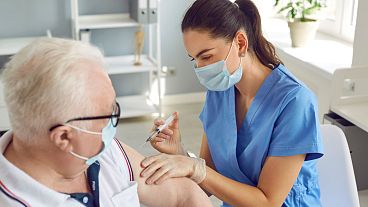Patients who are white and male were more likely to be prioritised in accident and emergency departments, according to a new French study.
Black patients are “less likely to receive emergency treatment” compared to white patients and women are less likely to be prioritised than men in accident and emergency departments.
That’s according to a new French study that found gender and ethnic bias among emergency doctors and nurses responding to patients' concerns about chest pain.
The study involved over 1,500 respondents from France, Belgium, Switzerland and Monaco who were asked to triage simulated patients.
Participants, who were unaware of the study's objective, were asked to assess a standardised clinical case involving chest pain. They were presented with one out of eight images generated by artificial intelligence (AI), which represented different genders and ethnic appearances.
"The respondents then were asked two questions. The first was to categorise the patient on a scale from one, extremely urgent, to five, not urgent at all. And the second was, how much pain do you think this person is experiencing?” Dr Fabien Coisy, a co-author of the study from the University of Montpellier, told Euronews Next.
They found that there were differences in reported priority levels for patients depending on their gender and ethnicity. The authors published their findings in the European Journal of Emergency Medicine.
"What the study finds is that, depending on the gender or the supposed origin of the patients, there is a lower proportion of patients classified as a life-threatening emergency depending on whether it's a man or a woman or Black ethnicity versus White ethnicity," Coisy said.
White, male patients reported as ‘higher priority’
Male patients received a higher reported priority compared to female patients with a 13 per cent difference, the study found. Black patients were less likely to receive emergency treatment compared to White patients with an 11 per cent difference.
There were no significant differences observed between patients of Southeast Asian and North African ethnicity compared to the White patients.
“We were surprised by those results because, in medicine, we treat everyone the same way," Dr Agnes Ricard-Hibon, a spokesperson from the French Society of Emergency Medicine, told Euronews Next.
Ricard-Hibon, who was not involved in the study, also pointed out that this study focuses on triage and not therapeutics.
The point of the study was to raise awareness regarding the potential cognitive biases of health professionals, according to Coisy.
Some of the limitations, the authors said, include that the appearances of the eight simulated patients were not the same and that they did not ask about the ethnicity of respondents, as it could have influenced the study.
The sample may also not represent the general population, they added.
‘More diversity and training could be key’
The researchers say there are fewer scientific studies about discriminatory bias in European countries compared to the US and the UK.
France has restrictions on using statistics related to ethnicity as well, which is why the researchers used AI-generated images for their study.
There has, however, been media attention on the topic in France, with several reports of patients dying because their symptoms or pain were not taken seriously.
More diversity among healthcare professionals and appropriate training could be key factors in decreasing the differences observed in the study, Coisy said.
“There is a high turnover in emergency services,” Ricard-Hibon pointed out, adding that there is a need to focus on training and current scientifically validated triage methods.



